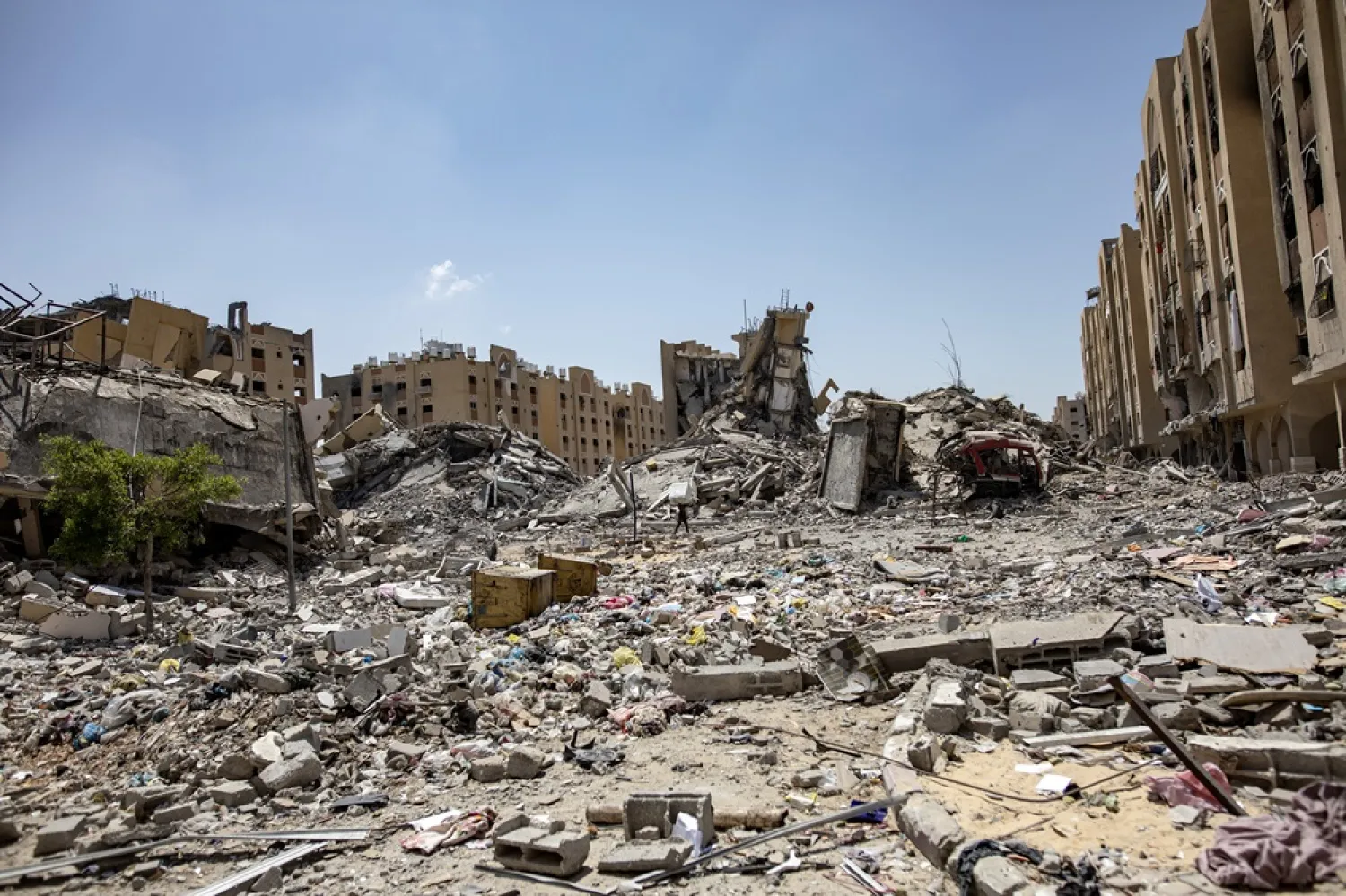Multiple Israeli airstrikes killed at least three dozen Palestinians in southern Gaza, health workers said Saturday, as officials including a Hamas delegation gathered for high-level ceasefire talks in neighboring Egypt.
Among the dead were 11 members of a family, including two children, after an airstrike hit their home in Khan Younis, according to Nasser Hospital, which received a total of 33 bodies from three strikes in and around the city that also hit tuk-tuks and passersby. Al-Aqsa Martyrs Hospital said it received three bodies from another strike.
The Israeli military said it was looking into the reports.
First responders also recovered 16 bodies from the Hamad City area of Khan Younis after a partial pullout of Israeli forces, 10 bodies from a residential block west of Khan Younis and two farther south in Rafah. The circumstances of their deaths were not immediately clear, but the areas were repeatedly bombed by the Israeli military over the past week. An Associated Press journalist counted the bodies.
Some residents returned to Hamad City, walking between destroyed apartment buildings.
“There is nothing, no apartment, no furniture, no homes, only destruction,” said one woman, Neveen Kheder. “We are dying slowly. You know what, if they gave a mercy bullet it would be better than what is happening to us.”
The war in Gaza began when Hamas and other fighters staged a surprise attack on Israel on Oct. 7, killing some 1,200 people, primarily civilians. More than 100 hostages were released during a ceasefire last year, but Hamas is still believed to be holding around 110. Israeli authorities estimate about a third are dead.
Israel’s retaliatory offensive has killed more than 40,000 Palestinians, according to Gaza’s Health Ministry, which does not distinguish between civilians and combatants in its count. The ministry said Saturday a total of 69 dead and 212 wounded had been brought to hospitals across the strip over the past 24 hours.
The conflict has caused widespread destruction and forced the vast majority of Gaza’s 2.3 million residents to flee their homes, with many cramming into shrinking “humanitarian zones.”
Experts were meeting Saturday on technical issues ahead of Sunday's high-level talks in Cairo on a possible ceasefire mediated by the United States, Egypt and Qatar. CIA Director William Burns, Qatar’s foreign minister and Egypt’s spy chief were meeting Saturday evening in Cairo, according to an Egyptian official with direct knowledge of the talks.
A Hamas delegation arrived Saturday in Cairo to meet with Egyptian and Qatari officials, senior Hamas official Mahmoud Merdawy told the AP. He stressed that Hamas will not take part directly in Sunday's talks but will be briefed by Egypt and Qatar.
An Israeli delegation that arrived Thursday included the heads of the Mossad foreign intelligence service and Shin Bet security service and top general Maj. Gen. Eliezer Toledano.
The CIA director and Brett McGurk, a senior adviser to President Joe Biden on the Middle East, are leading the US side of negotiations amid major differences between Israel and Hamas over Israel’s insistence that it maintain forces in two strategic corridors in Gaza.
The US has been pushing a proposal that aims at closing the gaps between Israel and Hamas as fears grow over a wider regional war after the recent targeted killings of leaders of the Hamas and Hezbollah groups, both blamed on Israel.
The chairman of the US Joint Chiefs of Staff, Gen. CQ Brown Jr., was visiting Egypt, Jordan and Israel over the next few days to “stress the importance of deterring further escalation of hostilities,” a statement said.
Biden called Israeli Prime Minister Benjamin Netanyahu on Wednesday to stress the urgency of reaching a deal and discussed developments with the leaders of Qatar and Egypt on Friday.
A major impasse has been the Philadelphi corridor along Gaza’s border with Egypt and the Netzarim east-west corridor across the territory. Netanyahu has insisted that Israel retain control of the corridors to prevent smuggling and catch militants.
Merdawy said Hamas' position had not changed from accepting an earlier draft that would include the full withdrawal of Israeli forces from Gaza.









